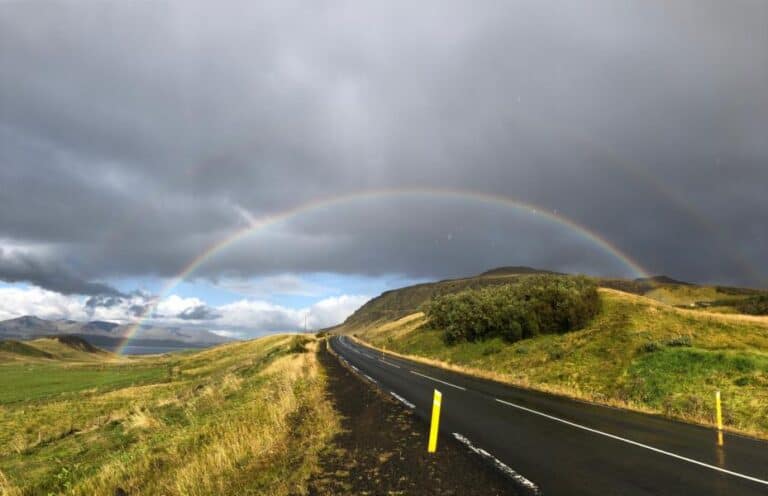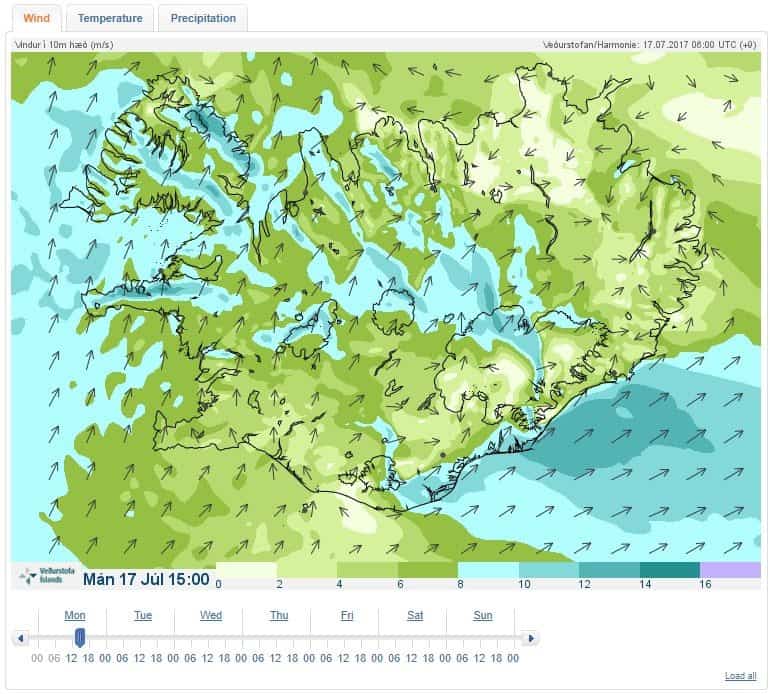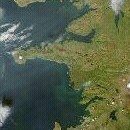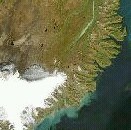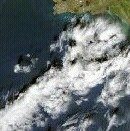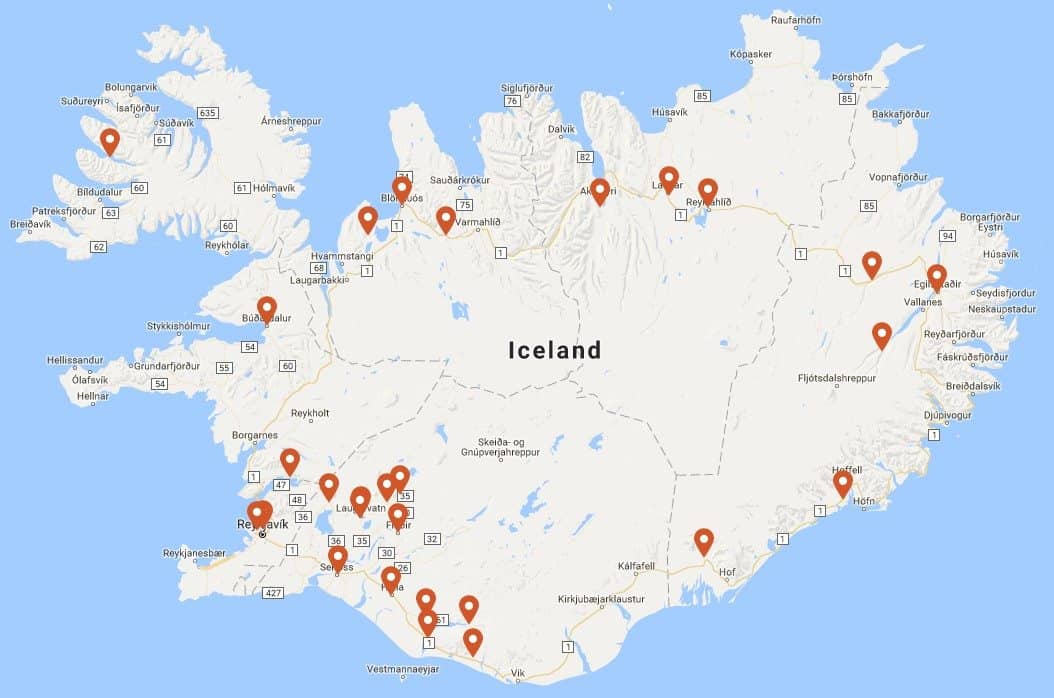Knowing the climate of your next destination helps you plan your activities and gives a good idea of what to pack. This is especially important if you’re planning a visit to Iceland, as the weather can to be unpredictable, with frequent weather changes shifting conditions from sunny to rainy in just a few minutes. But though a lot of people expect the worst Iceland conditions, the temperatures are much milder than most imagine.
At Rent.is we get a lot of questions about the best time to visit Iceland according to the weather. Iceland experiences highly variable conditions throughout the year, which can shift quickly—even within a single day. So, here’s a general Iceland weather forecast to guide you as you plan your camper van adventure.
Iceland Climate
Icelandic weather is influenced by a maritime climate best described as cold, windy, and cloudy. This is the case for most of the year despite the typical seasons of spring, summer, autumn, and winter. The cold temperatures are due to the island’s northern location and cold winds from the North Pole, but it is not as cold as other regions with the same altitude because the island lies in the path of the Gulf Stream and sits on top of one of the earth’s hot spots.
The Gulf Stream also plays a role in Iceland’s weather conditions, which are known for being erratic and unpredictable. It flows along the west and south of Iceland, raising Iceland’s average temperatures. The northern coastal area of Iceland is colder than the south as it is not touched by this current, but it also receives less rainfall. Reykjavik’s weather is usually at a middle level in both temperature and precipitation due to its location along the west coast.
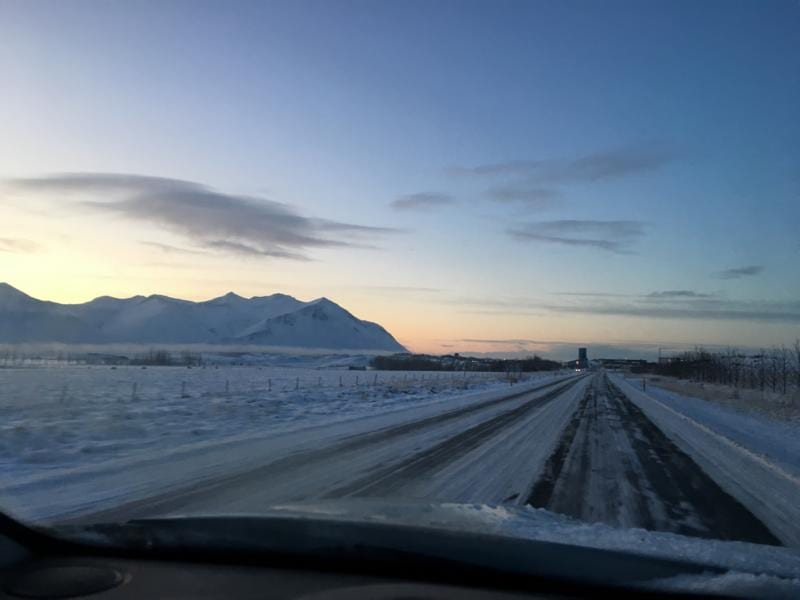
Winter in Iceland
Iceland has four seasons a year, though it might not feel that way because the weather changes all the time. Winter runs from November though March and is mainly characterized by shorter hours of sunlight. The shortest day of the year is December 21st. when there’s only about four to five hours of daylight. But these dark months are not all doom and gloom, as Icelandic winters are not as cold as one would expect. Average temperatures are warmer than Canadian, Russian, and even New York winters!
In the southern areas such as Reykjavík, the average temperature is around 0°C and can go down to -5° or up to +5°C. Snowfall is common from as early as October into late springtime in May.
Many tourists visit Iceland in winter, as it’s the best time to see the ethereal Northern Lights and trek through the ice caves. Hot springs also stay bubbling all year round.
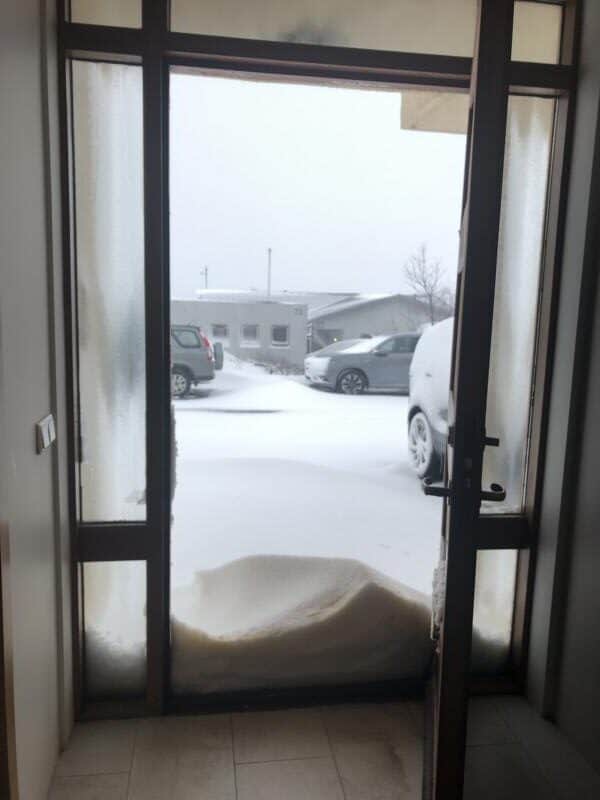
Summer in Iceland
So, what is the weather of Iceland really like in the summer?
Summertime in Iceland isn’t quite the same as summers in other parts of the world. Although temperatures remain cool and Iceland’s weather in the summer is unpredictable, the island is still buzzing with festivals and national celebrations. Summer usually begins in late May or early June and lasts until mid to late August.
While summer temperatures may not rise significantly, the days get longer and longer until the Midnight Sun, when daylight lasts for 24 hours. This Summer Solstice usually happens on June 21st after which the hours of sunlight slowly begin to decrease. If you’re like most travelers who prefer to take their camping trips in the summer, you’ll get to see more of Iceland at this time of year-especially as highland roads reopen after being closed during the winter months.
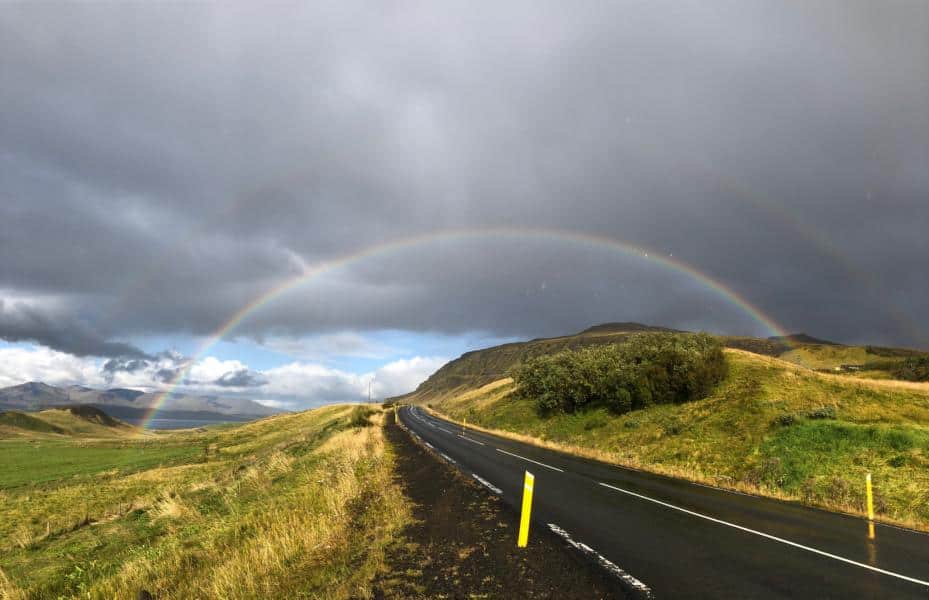
Iceland Temperatures
Iceland’s average temperature doesn’t vary considerably between day and night, or even from season to season. The difference is more noticeable from area to area, both between day and night and between winter and summer.
In winter, the average temperature in plains and coastal areas is around 0°C (32°F), though it’s a few degrees colder on the northern coast. Inland areas see more extreme cold dropping as low as -15°C (5°F) in the highlands.
Iceland summer temperatures are just slightly higher, but still cool. July and August are the warmest months, with lows of about 9°C (48°F) and highs of 14°C (57°F). On the north coast, they get up to 10/12°C (50/54°F).
Iceland weather is typically never hot; the highest records along the coast are 26°C (79°F) and 28°C (82°F) inland.
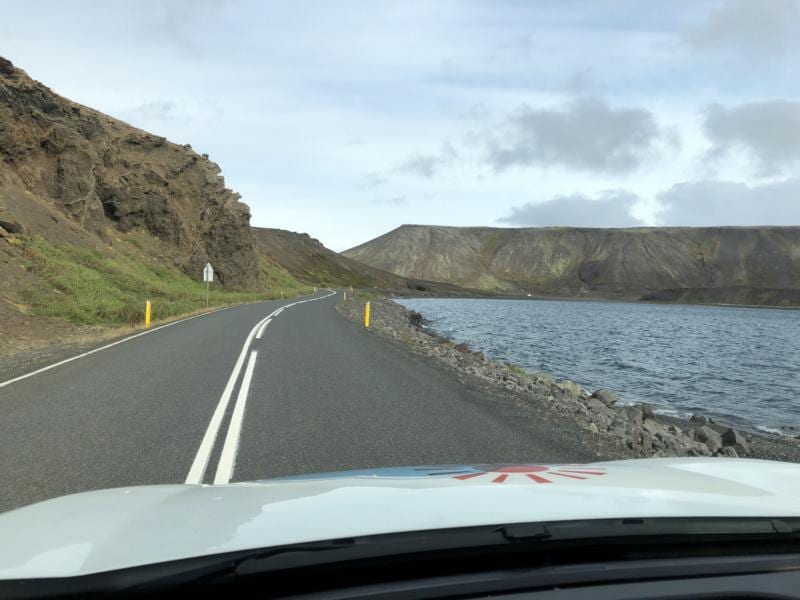
Iceland Wind Conditions
Though temperatures are generally not extreme, wind conditions can affect the overall feel of the day. Iceland is a very windy country. Add this to the erratic weather, and you’ll understand why calm days on the island are rare. The average wind speed in Iceland is 11.6 miles per hour. It slows a bit in the summer but grows stronger and more constant in the winter.
Katabatic winds are quite common in Iceland. So if you’re planning to take your camper van along the Ring Road in winter, always check the road conditions and wind speed, especially along the south coast.
Be prepared
Whatever the weather, the most important thing is to be prepared for it. During seasons when it can change rapidly, it’s crucial to know what’s ahead and what kind of weather to expect. Since you’ll be driving in one of our camper vans, you’ll have free WiFi and can easily follow the weather forecast. As our CamperStories contributors often share, the vans are warm and toasty thanks to the inboard heating system, so cold nights are never a problem
Below is an interactive weather map—move the arrow to see the forecast for the days ahead. (You’ll be taken to the official site of the Icelandic Met Office.)
By knowing what’s ahead, you can plan your trip more effectively and stay safer on the road.
If you find the maps hard to read, you can always rely on our colleagues at Safe Travel and the Icelandic road administration-Both working hard to keep travelers safe.
Safe travel offers a free service we highly recommend. Just fill out a form with your travel plans and hit send. If you get stuck in snow, face freezing winds, or drive into poor visibility, the more information they have, the better they can assist in emergencies.
It’s equally important to know the road conditions for your route. One easy way is to check the live cams from the roads you plan to drive. You can find them here! Click below on the area you’re headed to, and you’ll be taken to the latest updates. courtesy of the Icelandic Road Administration.
| The entire country | South Iceland | South‑West Iceland | West Iceland | The Westfjords |
| North Iceland | North‑East Iceland | East Iceland | South‑East Iceland |
While winter camping in Iceland, we recommend using the campsites that are open all year round. Below is an interactive map showing all the campgrounds available during the off-season. It’s continuously updated so stay up to date on where you can camp.
While winter camping in Iceland might sound extreme, it really isn’t. It just takes some planning and staying current with the weather forecast and road conditions. If you do, you will have a very memorable vacation, a story to pass on to others.
Explore With Rent.is
The generally mild average temperatures in Iceland are good news —you don’t have to limit your travel window to just a few months a year.
Rent.is makes your journey even more comfortable with Iceland camper rental vans that are fully equipped with a heating system and sleeping bags.
Browse our Iceland travel guide and Iceland packing list for more helpful tips—or, if you’re ready to book your trip, contact our team today!
Read more: Campsites in Iceland
Happy Camping! #WohoCamper

